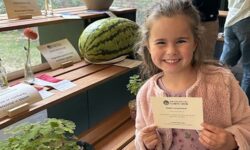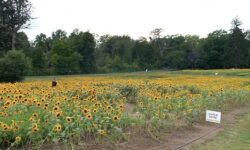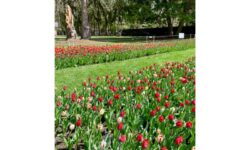[ccfic caption-text format="plaintext"]
By James Ensor
Hometown Weekly Reporter
The vast majority of us today don’t give much thought to how the fruits and vegetables we eat are grown, let alone how the seeds that grow them are cultivated. Before the advent of agro-business, however, an important part of a people’s identity was the food they grew and the seeds they saved.
“We do a lot of work with heirloom seeds and plants because, for example, the Irish potato famine occurred because of a lack of biodiversity,” said John Forti, the Director of Horticulture and Education at the Massachusetts Horticultural Society. “In my talk today, I’ll show how much we’ve narrowed genetic diversity in the last hundred years. There were over a thousand varieties of apples in New England, and now there are about five parent types of apples in the markets. That’s how things like the potato famine happened, and we should always be steering clear of that.”
An heirloom plant or seed is an open pollinated plant that predates or is unaltered by modern breeding work, often having been passed down from generation to generation. The Massachusetts Horticultural Society, which is based in Wellesley and is the oldest in America, promotes the use of heirloom seeds in order to increase the genetic diversity of our produce.
“We started the school gardens movement, rooftop garden movement, community gardens - brought all those things to America,” said Forti. “We’re looking at a culture today where agro-business grows a set number of plants that work for the Midwest, and there are a number of GMOs and hybrids that work for the manufacturers of food, but we come from a long history of raising food with seeds that you loved and saved for your backyard.”
The seeds Forti distributed at the talk in the Dover Library were Boston pickling cucumber and dill seeds so that kids and adults in the community could start to practice saving heirloom seeds themselves. An important part of the Horticultural Society’s mission is preserving the seeds that were brought over by our ancestors in the earlier years of America. Saving the seeds of your own plants, Forti and the Horticultural Society inform, means that growers can choose the best seeds for their own plots, creating a sustainable food-growing model that does not rely on seeds designed for large farms in the Midwest.
At their one-acre space in Wellesley, the Massachusetts Horticultural Society provides educational programs for kids and adults. It also grows crops in an effort to prove the effectiveness of using heirloom seeds to promote genetic diversity into today’s food crops.
























